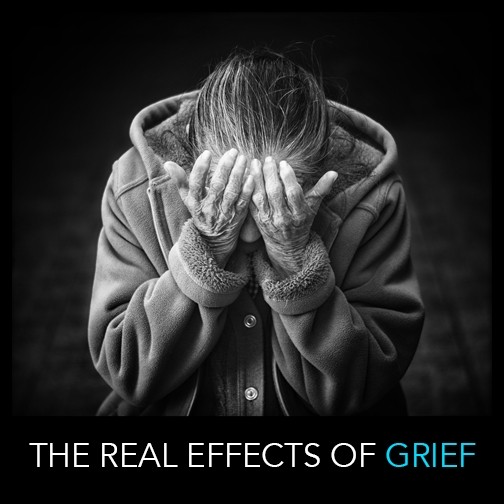The Real Effects of Grief:
I’ve been a private investigator for over thirty years now and, throughout my career, year in and year out, I’ve been approached by grieving mums and twisted dads, bent over the fact that they have no idea where their children are. In the meantime, the kids in question have slipped off the radar for any number of reasons, be it they’ve fallen in love, they needed some “time off,” they’ve simply lost their way or something more sinister has happened.
In those thirty years, I must have handled at least a hundred missing persons cases and the vast majority of them have revolved around missing children and teenagers, mostly the latter.
Whether there’s been a fight in the family and the children storm off out of the house, a child doesn’t return from the corner store or worse, in every single case, after the initial emotions subside, parents and families go through the “Five stages of Grief.” Not necessarily all five, and most certainly hardly ever in chronological order – in fact, there isn’t really an order in which people pass through the stages; some can simply suffer from one or two stages, others can suffer all five in a single day for every day of the week. But, it’s important to note what actually happens to people when they are grieving, because it’s a lot more than just a few tears and softly spoken words, that’s for sure.
Before we begin, it’s important to note that there are thousands of possibilities and outcomes for each particular stage and scenario – I won’t be able to cover them all, but I will dive as deep as I can.
 STAGE 1: DENIAL
STAGE 1: DENIAL
Denial is the first of the five stages and essentially a coping mechanism that allows sufferers the opportunity to filter in sensitive information as and when they begin letting go. Until then, however, denial will get in the way of logic and reason and, in some cases, as I can tell you from experience, denial can lead to some very tragic consequences in itself.
Where children go missing on their own accord, like running away from home to sneak off with that new guy from school for example, both parents tend to overcome the initial bouts of denial until they come to realise that it just isn’t within their power to communicate with their children. This tends to take a day or two, as most parents would try multiple times earlier on, and then get the picture that their children need some time to themselves before talking again.
There’s a huge range of things to take into consideration before denial can get a chance to rear its head; how long the children have been gone; who they left with; where they would most likely go; where they would most likely end up; who their friends are and so on.
Generally speaking, however, denial will kick in as soon as the initial shock of the children being “officially” lost sets in. That’s to say that either or both parents and other family members will continue telling themselves that they haven’t checked with “Bill,” or there’s still a chance to “look behind the church” – even when these options have been considered multiple times, people can still continue to tell themselves that there’s hope.
That hope can be a hugely destructive force though; one case I took on in the late 90s had a mother in such denial that she pushed her entire social circle away. She lost her job, her house, her car and then her husband before ending up in a rehabilitation centre after her teenage son disappeared. It took just six months for denial to tear that woman’s life apart and after two more in therapy, she was able to commit herself to the world again. Interestingly enough, we managed to locate her son sixteen months later after he’d decided to return from his travels around Asia – with a woman he’d met in at a bar just a few nights before he decided to run away.
Thankfully, there are a number of ways to combat denial. Usually the person suffering it will need to face those demons alone; their memories; their triggers and their pain is something that the average Joe just isn’t going to be able to grasp… but actually revisiting the situations, presenting the facts and following up with information about what is being done to solve the problem are techniques that I have personally seen work. Timing is key and, of course, it’s more important than ever to be aware of the person’s mind set before moving forward.
 STAGE 2: ANGER
STAGE 2: ANGER
This one doesn’t really need an introduction – I think it’s safe to assume we all know what anger is.
However, you’d be surprised at just how easily the most mellow of people can turn from silent and teary-eyed to down-right ferocious. As you could imagine, the anger that people feel as a result of their grievances is a whole lot more than being easily irritated or snappy. Anger can take a hold so deeply that people become numb to the kindnesses around them, immune to the love that people hold for them and careless with themselves and the people that matter most.
Most of all, people make incredibly foolish mistakes when they are angry – studies have also shown that concentration and productivity are directly affected by levels of anger.
A case I took on not that long ago saw an adoptive dad lash out at his boss after he was told that he was would face losing his job after being late one more time that month. Instead, he broke his boss’ nose – all due to the fact that his two youngest daughters had decided to run away… to a festival no less… but to be fair they hadn’t told him or anyone else where they were. It was only after he had reported them missing to the police that someone at the festival spotted them and made contact with the local law enforcement.
 STAGE 3: BARGAINING
STAGE 3: BARGAINING
Otherwise known as “desperation,” “bargaining” is the stage of the grieving process where people turn to almost any means to dull their pain. Asking God for help and/or forgiveness is common; promising that they’ll never do something again in return for easing their suffering; challenging fate to deal them better hands in return for working harder, being nicer or the like. Generally speaking, “bargaining” doesn’t affect everyone, but I have personally seen sane, strong-minded individuals succumb to it after their children have gone missing.
One family I worked with, around 2005, had the mother and father turn to religion after their six-year-old daughter was abducted. Their sense of “bargaining” had become so strong that they decided to spend the rest of their lives repenting and asking forgiveness for their sins.
Unfortunately, that family’s sense of reality became warped, and after finding that their daughter was murdered, their clutch to the heavens only grew stronger.
 STAGE 4: DEPRESSION
STAGE 4: DEPRESSION
“Depression,” as a stage in the grieving process, refers to the point in time where the people or person grieving has come to realise that their lives have been turned upside down by whatever stresses or strains are causing their pain.
In cases where children and teenagers have run away or gone missing, depression would tend to kick in anywhere between a few days to a few weeks later – depending on the people in question. However, the most common trigger for depression is a combination of financial strain and the feeling of emptiness; when one or the other happens independently, people’s logic and determination are powerful enough to overcome them… but, as a father spends thousands of dollars and hours away from work to find his child, and the bills become too much to bear, depression would most likely kick in and continue to eat away at him, as soon as he came to realise that he couldn’t continue searching without needing to make more money first.
As such, and from my personal point of view, depression is another coping mechanism (albeit a bad one) that we enter into when we feel as though progress and optimism are simply non-existent.
 STAGE 5: ACCEPTANCE
STAGE 5: ACCEPTANCE
“Acceptance” is the last stage of grieving, and rightly so because it’s the point where people admit to themselves and those around them, that things aren’t going to get better and that their current situation is a genuine reality.
Some of the most interesting and quite honestly, tear-jerking cases I’ve ever worked on have been in situations where parents have gone through several of the stages, entered into “acceptance” and then, only a few months later or even a few years, the person they thought they’d never see again comes back into their lives.
One such case saw an elderly couple who’d been happily married for over sixty years, fall apart after the old man got lost walking home from the shops. He was lost for nearly three months before we got a tip that he was spotted at a bus stop on the other side of the country. His wife knew he was ill and given the timeframes, decided to enter into “acceptance” after just a few months – they were both in their late 80s and she figured that her chances of ever seeing him again were too slim.
It turned out that on that walk, that man had fallen victim to a minor stroke, resulting in confusion when he woke up. The concussion he suffered when he hit the floor seemed to be the main cause for the dementia that developed at around the same time. As such, the man had no idea where he was, where he lived, how old he was or what his last name was.
While most people might think that “acceptance” is the best part of the whole grieving process, it comes at a price too. Considering how long it can take for “acceptance” to kick in, there have been cases where people have returned from their escapades several years later, only to find that the people they left behind have well and truly accepted their loss and moved on. Family friends of mine endured something similar to this when their twenty-one-year-old son decided to go it alone, returning five years later without so much as a “hello” for the entire time he was away. His parents had filed missing persons reports, checked with his friends, spent countless days rummaging through bushes in the dark, walking miles in the day and worrying themselves sick… until one day it all passed.
When he came back into their lives, they were almost disappointed to see him; even going as far as to tell him that their time away from him made them realise what a terrible person he was and that they were, in fact, relieved to have him leave them the way he did… even going as far as to tell him that he may as well go away because there was nothing there for him anymore.
So what’s the point – what’s the moral to all this?
As a kid who ran away from home himself, I can’t tell you not to run away – but I can ask you to consider how your action are going to affect everyone around you. Whether you think that people hate you, or your family’s terrible, I can assure you that there will always be at least one person that will feel like their world has been ripped away if you decide to leave. So, all I can really suggest to you is that if you are going to run away, that you at least leave a note to explain where you’re going (not exactly, but a vague idea anyway), mentioning some kind of plan as how you’re going to keep yourself alive and, if you can, touch base with home through writing or calls just to let your family and friends know you’re alive and well.
A simple “I’m doing fine out here. See y’all on the flip side” can be the difference between hundreds of man hours spent looking for you, and a little assurance that you’ll be okay.
If you’re the parent and your child has gone missing, my sincerest regrets, but now it’s up to you to keep yourself and the rest of your family under control. Work together to keep yourselves occupied with keeping your family functional and afloat – desperation will try and lead you off track, but keep your wits about you, keep your head up and march on.
Australia is lucky enough to have a 95% success rate across the country in regards to finding missing people – the authorities and your local private investigators have shown, time and time again, that when enough information comes to light, it’s quite likely that your children can and will be found. However, giving up on everything is a sure-fire way to have your family and your lives fall apart.
I’m not saying give up, I’m just saying don’t give in.






















